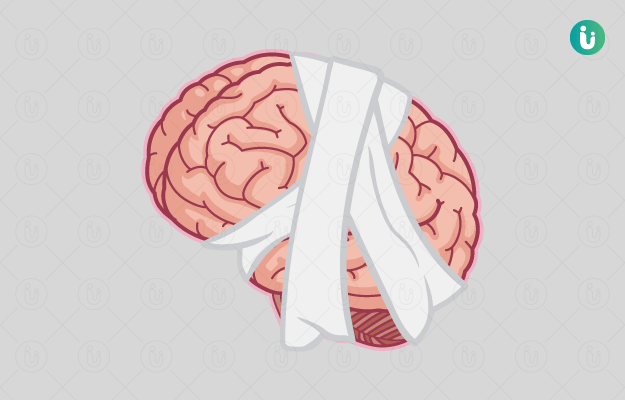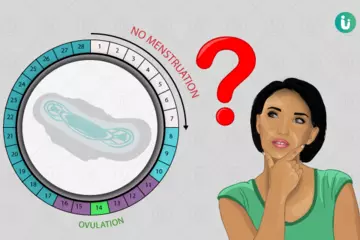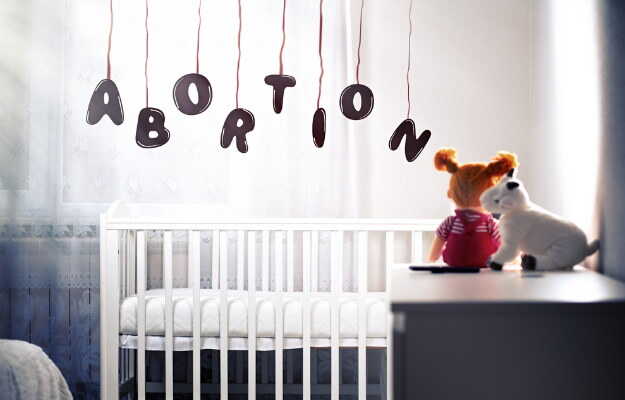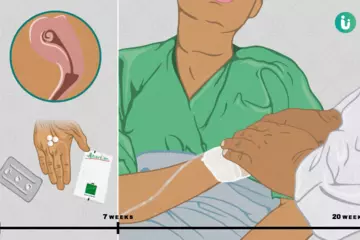What is brain injury?
Brain injury refers to any damage that occurs to the brain cells, resulting in their death or destruction. It can happen due to external injury or due to internal factors. As brain is the control centre for all body activities, any injury to the brain can affect the body’s functioning. Brain injuries can be present since birth (congenital) or acquired. Based on its severity, brain injury can be mild, moderate or severe, and may often be fatal.
What are its main signs and symptoms?
Signs and symptoms of brain injury depend on the area of the brain that is injured. These symptoms can be broadly categorised into cognitive, behavioural, perceptual and physical.
Cognitive symptoms include:
- Difficulty in understanding
- Difficulty in thinking and expressing thoughts
- Attention deficit
- Poor decision making
- Loss of memory
Behavioural symptoms include:
- Irritability
- Agitation and aggression
- Poor stress tolerance
- Sluggishness
- Flattened emotions
Perceptual symptoms include:
- Altered sense of vision, hearing or touch
- Disorientation
- Altered taste and smell
- Difficulty with balance
- Reduced pain threshold
Physical symptoms include:
- Severe and persistent headache
- Fatigue
- Paralysis
- Tremors and seizures
- Photophobia (light sensitivity)
- Slurring of speech
- Loss of consciousness
- Sleep disturbance
What are its main causes?
Brain injury occurs mainly due to cutting off of the oxygen supply to the brain, which results in brain hypoxia (low oxygen in the tissue). The causes are classified as external and internal injury.
Causes of external (traumatic) injury include:
- Fall
- Vehicular injury
- Sports injuries
- Blow to the head
Causes of internal injury include:
- Stroke
- Tumour
- Aneurysm (a blood vessel deformity in the brain)
- Infection
- Poisoning
- Drug abuse
- Neurologic illness
How is it diagnosed and treated?
A detailed clinical history and physical examination help in the diagnosis of brain injury. However, certain investigations are mandatory to know the extent, severity and prognosis of the injury. These tests include:
- Computed tomography (CT) scan: It is the first radiological test performed on suspecting brain injury. It helps in finding skull fractures, bleeding, haematoma and tissue swelling.
- Magnetic resonance imaging (MRI) scan: It is of more significance and has better accuracy compared to a CT scan. It gives a detailed view of the brain and its various parts.
The Glasgow Coma Scale is used by doctors for evaluating the severity of brain injury. Higher scores indicate less severe injury, while lower scores indicate severe injury.
Treatment of brain injury primarily depends on its severity. A mild injury generally requires only observation of symptoms and does not require any treatment. On the other hand, moderate and severe injuries require aggressive treatment, ranging from simple medications to surgery.
Medications for brain injury include:
- Anti-seizure drugs – Seizures are a common symptom of brain injury and can further damage the brain. Thus, anti-seizure drugs are of great help in the treatment.
- Diuretics – Some types of brain injuries result in development of swelling around the brain. The use of diuretics can reduce this swelling and help in relieving pressure symptoms.
- Coma-inducing drugs – When the brain is trying to recover on its own, it starts utilising extra oxygen. However, if the blood vessels are compressed or damaged, it may not get enough oxygen, and this can result in further injury and death of brain cells. In order to avoid this, coma-inducing drugs are used to reduce the oxygen requirement and functioning of brain cells.
The role of surgery for brain injury includes many procedures, common being:
- Repairing the skull fracture
- Removing a blood clot from brain
- Suturing a bleeding vessel
- Creating a window in the skull to relieve pressure
Apart from surgery and medications, rehabilitation is required to improve the functioning of the brain and the organs affected by brain damage. Rehabilitation includes physiotherapy, occupational therapy, counselling and recreational therapy.

 Doctors for Brain Injury
Doctors for Brain Injury  OTC Medicines for Brain Injury
OTC Medicines for Brain Injury



















